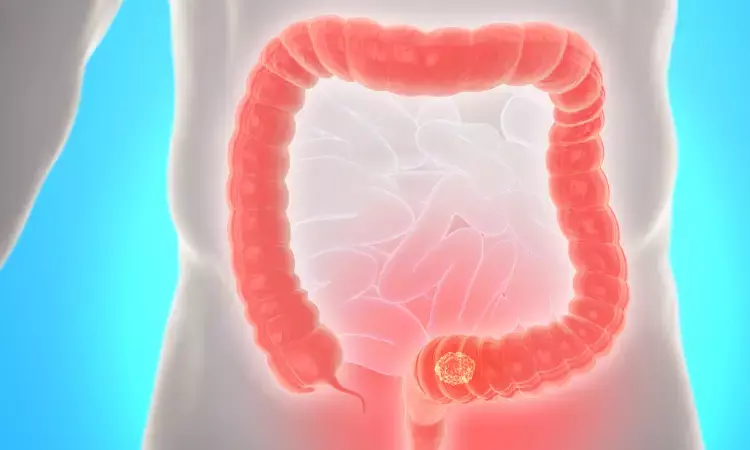- Home
- Medical news & Guidelines
- Anesthesiology
- Cardiology and CTVS
- Critical Care
- Dentistry
- Dermatology
- Diabetes and Endocrinology
- ENT
- Gastroenterology
- Medicine
- Nephrology
- Neurology
- Obstretics-Gynaecology
- Oncology
- Ophthalmology
- Orthopaedics
- Pediatrics-Neonatology
- Psychiatry
- Pulmonology
- Radiology
- Surgery
- Urology
- Laboratory Medicine
- Diet
- Nursing
- Paramedical
- Physiotherapy
- Health news
- Fact Check
- Bone Health Fact Check
- Brain Health Fact Check
- Cancer Related Fact Check
- Child Care Fact Check
- Dental and oral health fact check
- Diabetes and metabolic health fact check
- Diet and Nutrition Fact Check
- Eye and ENT Care Fact Check
- Fitness fact check
- Gut health fact check
- Heart health fact check
- Kidney health fact check
- Medical education fact check
- Men's health fact check
- Respiratory fact check
- Skin and hair care fact check
- Vaccine and Immunization fact check
- Women's health fact check
- AYUSH
- State News
- Andaman and Nicobar Islands
- Andhra Pradesh
- Arunachal Pradesh
- Assam
- Bihar
- Chandigarh
- Chattisgarh
- Dadra and Nagar Haveli
- Daman and Diu
- Delhi
- Goa
- Gujarat
- Haryana
- Himachal Pradesh
- Jammu & Kashmir
- Jharkhand
- Karnataka
- Kerala
- Ladakh
- Lakshadweep
- Madhya Pradesh
- Maharashtra
- Manipur
- Meghalaya
- Mizoram
- Nagaland
- Odisha
- Puducherry
- Punjab
- Rajasthan
- Sikkim
- Tamil Nadu
- Telangana
- Tripura
- Uttar Pradesh
- Uttrakhand
- West Bengal
- Medical Education
- Industry
In Utero exposure to Dicyclomine tied to increased risk of colorectal cancer among offsprings

According to a journal article published in JNCI Cancer Spectrum entitled "In utero exposure to anti-emetic and risk of adult-onset colorectal cancer”, researchers have concluded that the Higher Risk of CRC in offspring exposed in utero may be driven by dicyclomine contained in the three-part formulation of Bendectin used during the 1960s.
Among adults born in and after 1960, there are increasing incidence rates of colorectal cancer (CRC). This implicates pregnancy-related exposures as a risk factor introduced at that time. In 1960, dicyclomine was initially introduced as an antispasmodic for managing irritable bowel syndrome. It was used in Bendectin (doxylamine/pyridoxine/dicyclomine), which is an anti-emetic. This was prescribed during pregnancy in the 1960s.
A team of researchers estimated this association and enrolled pregnant women in Oakland, CA, between 1959 and 1966, including 14,507 mothers and 18,751 liveborn offspring.
The prescribed medications were reviewed from mothers’ medical records to identify those who received Bendectin during pregnancy. Diagnoses of CRC in adult (age ≥18 years) offspring were ascertained by linkage with the California Cancer. The adjusted hazard ratios (aHR) were estimated with follow-up accrued from birth through cancer diagnosis, death, or last contact.
The study results could be summarised as follows:
- A total of 1014 offspring constituting 5% of offspring, were exposed in utero to Bendectin.
- The Risk of colorectal cancer or CRC was higher in offspring exposed in utero with aHR of 3.38 than in unexposed offspring.
- CRC incidence rates in offspring exposed to Bendectin and unexposed were 30.8 and 10.1 per 100,000, respectively.
In conclusion, Murphy et al. said, “We reported a higher risk of Colorectal cancer in offspring exposed in utero. This Risk may be driven by dicyclomine, one of the ingredients contained in the three-part formulation of Bendectin, which was used in the 1960s.”
Further studies are warranted to clarify these findings and identify mechanisms of Risk.
Further reading:
Caitlin C Murphy, PhD, MPH, Piera M Cirillo, MPH, Nickilou Y Krigbaum, MPH, Amit G Singal, MD, MS, Barbara A Cohn, PhD, In utero exposure to anti-emetic and risk of adult-onset colorectal cancer, JNCI Cancer Spectrum, 2023; pkad021, https://doi.org/10.1093/jncics/pkad021
BDS, MDS in Periodontics and Implantology
Dr. Aditi Yadav is a BDS, MDS in Periodontics and Implantology. She has a clinical experience of 5 years as a laser dental surgeon. She also has a Diploma in clinical research and pharmacovigilance and is a Certified data scientist. She is currently working as a content developer in e-health services. Dr. Yadav has a keen interest in Medical Journalism and is actively involved in Medical Research writing.
Dr Kamal Kant Kohli-MBBS, DTCD- a chest specialist with more than 30 years of practice and a flair for writing clinical articles, Dr Kamal Kant Kohli joined Medical Dialogues as a Chief Editor of Medical News. Besides writing articles, as an editor, he proofreads and verifies all the medical content published on Medical Dialogues including those coming from journals, studies,medical conferences,guidelines etc. Email: drkohli@medicaldialogues.in. Contact no. 011-43720751


